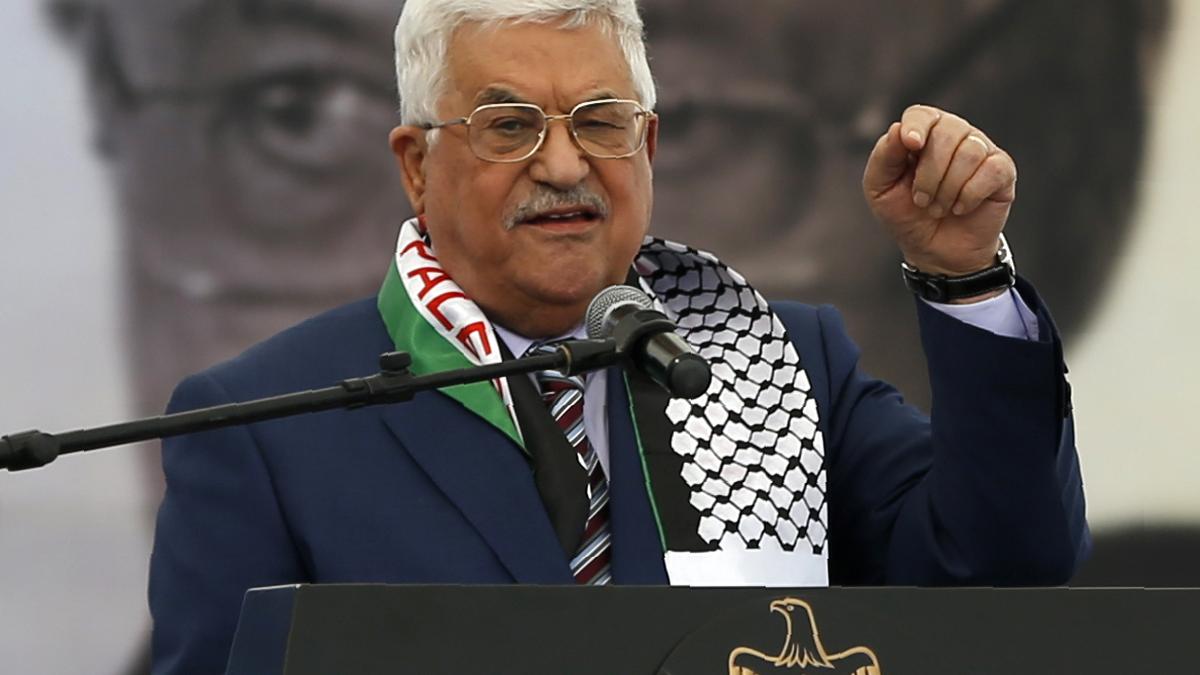President Abbas Announces PA's Readiness to Assume Full Responsibility in Post-War Gaza
Get ready for a major shift in the Gaza landscape! Following a recent ceasefire, Palestinian President Mahmoud Abbas declared that the Palestinian Authority (PA) is fully prepared to take the reins in post-war Gaza. This monumental announcement marks a potential turning point in the region, sparking excitement, concern, and endless debate about the future of this war-torn territory. Will this lead to lasting peace or will the future be filled with continued strife? Let's delve into this critical issue.
The PA's Bold Move: Taking Control of Gaza
President Abbas's declaration has sent shockwaves through the region. The PA, which has already been responsible for managing the West Bank, is now aiming to fully manage and rebuild war-ravaged Gaza. This ambitious plan involves overseeing everything from infrastructure repair to civilian services. The presidential statement asserted their preparedness in returning displaced persons, managing crossings, and revitalizing this once vibrant region.
A Comprehensive Approach to Reconstruction
This isn't a half-hearted attempt. The PA has laid out detailed plans to implement a complete rehabilitation plan for Gaza. From fixing shattered hospitals and schools to establishing sustainable economic systems and infrastructure improvements. The initiative is an all-encompassing attempt to not merely repair the wounds of war, but to create a functional society.
Addressing Displaced Populations and Crucial Services
Thousands are displaced after the war, a fact not lost on the PA. They recognize the urgent need for immediate shelter, provisions for their most basic needs such as food and water. Furthermore, long-term strategies for housing and livelihood are part of their ambitious roadmap. They also intend to streamline border crossing management, which has become a major pain point in recent years. This improved border traffic would facilitate goods and aid, accelerating the process of societal healing.
Hamas's Response and International Involvement
While Hamas held effective control over Gaza for many years, the group has indicated they would not stand in the way of civilian authorities, though they did win the last legislative elections back in 2006. They appear more willing to prioritize stability and recovery following the devastating war. This shift has generated significant optimism among some who hope for a lasting peace.
Israel's Stance and US Mediation Efforts
Interestingly, Israel's stance on the post-war situation remains more cautious, particularly considering its prime minister and the country's consistent stance against either group administering the area after the conflict. The Israeli government is actively engaged in internal deliberation to vote on the ceasefire deal. Yet, the US Secretary of State Blinken has stated his backing for the PA assuming authority. This support from such a crucial world player adds further complexities to an already challenging equation.
The Crucial Role of US, Qatari, and Egyptian Mediators
A tripartite agreement involving the United States, Qatar and Egypt was created to observe the implementation of this complex agreement. This international collaboration is aimed at reducing the risk of future clashes, ensuring both the ceasefire and the transition of power remains relatively smooth. With such high-stakes involvement, a successful implementation is both a high priority and an urgent requirement.
The Future of Gaza: Challenges and Hopes
The path ahead will undoubtedly present formidable obstacles. Reconciling the various factions, ensuring the delivery of vital aid, and managing expectations will all be crucial for success. However, this move towards Palestinian unity offers a powerful symbol of hope, which carries the possibility of significant change, promising the dawn of a new era for Gaza. Yet, significant challenges remain ahead in regards to international involvement and approval.
Overcoming Past Conflicts and Promoting Long-Term Peace
For a better future, it is vital to look past previous events, but it also entails addressing the root causes of decades of conflict, a complicated problem with a long and messy history. Long-term sustainability also entails working towards more holistic agreements for lasting peace.
Establishing Sustainable Governance and Infrastructure
The establishment of functional governance structures and robust infrastructure, including strong security apparatus is key to stability. Infrastructure rebuild efforts need to focus on rebuilding in addition to sustainable planning for the region and its inhabitants.
Take Away Points
- The PA's commitment to assume full responsibility in post-war Gaza is a monumental step towards establishing a unified Palestinian entity.
- International involvement, particularly from the U.S., Qatar, and Egypt, will play a crucial role in monitoring the ceasefire and facilitating a peaceful transition.
- The road to lasting peace in Gaza will be challenging, requiring reconciliation, effective governance, and substantial international support. The road ahead is challenging but carries the potential of long-lasting peace. This may be an unprecedented possibility.




